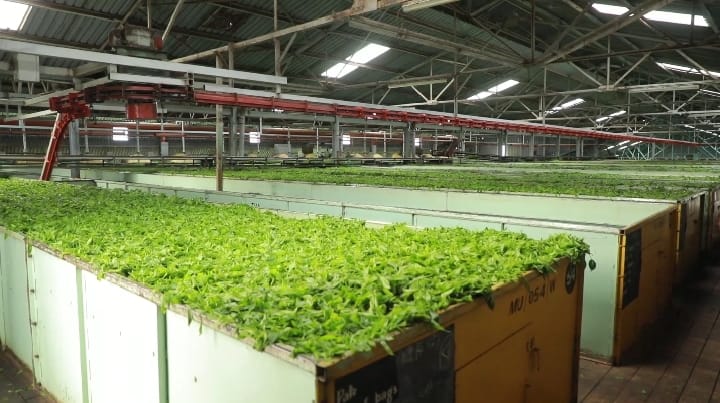By Murugi Ndwiga
Rukuriri Tea Factory has voiced frustration over delays in completing its long-awaited orthodox tea processing line, saying the setback has denied farmers the opportunity to earn higher bonuses this year.

Speaking during a meeting with tea buying centre committee members, Factory Board Chairperson Joseph Rwanjau said the contractor’s slow progress had disrupted production targets and affected farmer earnings.
“The delay has thrown off our plans,” said Mr. Rwanjau. “We were to begin processing orthodox tea in May, but the project has dragged on, and that has impacted our ability to pay better bonuses.”
Rwanjau noted that Rukuriri, which has consistently ranked among the top-paying factories nationwide, paid Sh57.10 per kilogram this year — lower than last year’s Sh61. He said the factory had expected to surpass that figure once the new processing line became operational.
YOU ALSO MISSED: https://safinews.co.ke/kenyans-demands-resignation-of-nyeri-governor-mutahi-kahiga/
The chairperson added that installation is now expected to be completed by December, expressing optimism that the new facility will enhance diversification and improve farmer returns next year.
He revealed that the factory has also imported a Sh10 million tea-packing machine, scheduled to begin operations in December, which is expected to triple production and boost income through the sale of branded tea bags and orthodox tea. “Our focus is on value addition and quality,” he said. “That’s what will keep Rukuriri competitive and ensure our farmers continue earning top bonuses.”
Rwanjau further reported a rise in green leaf production, with quarterly collection increasing to 1.7 million kilograms from 1.6 million kilograms in the same period last year. He attributed the growth to improved farming practices and the timely delivery of fertilizer, expected to reach farmers soon from the Port of Mombasa.
He dismissed claims of regional favoritism in bonus payments, insisting that tea quality remains the sole determinant of rates.
Commenting on proposals to introduce machine-based flavor testing in the tea industry, Rwanjau termed the idea unrealistic.
“Tea is judged best by human tasters,” he remarked. “Replacing that expertise with machines would risk the authenticity and reputation of Kenyan tea.”


**men balance pro**
MEN Balance Pro is a high-quality dietary supplement developed with research-informed support to help men maintain healthy prostate function.
Can you be more specific about the content of your article? After reading it, I still have some doubts. Hope you can help me.